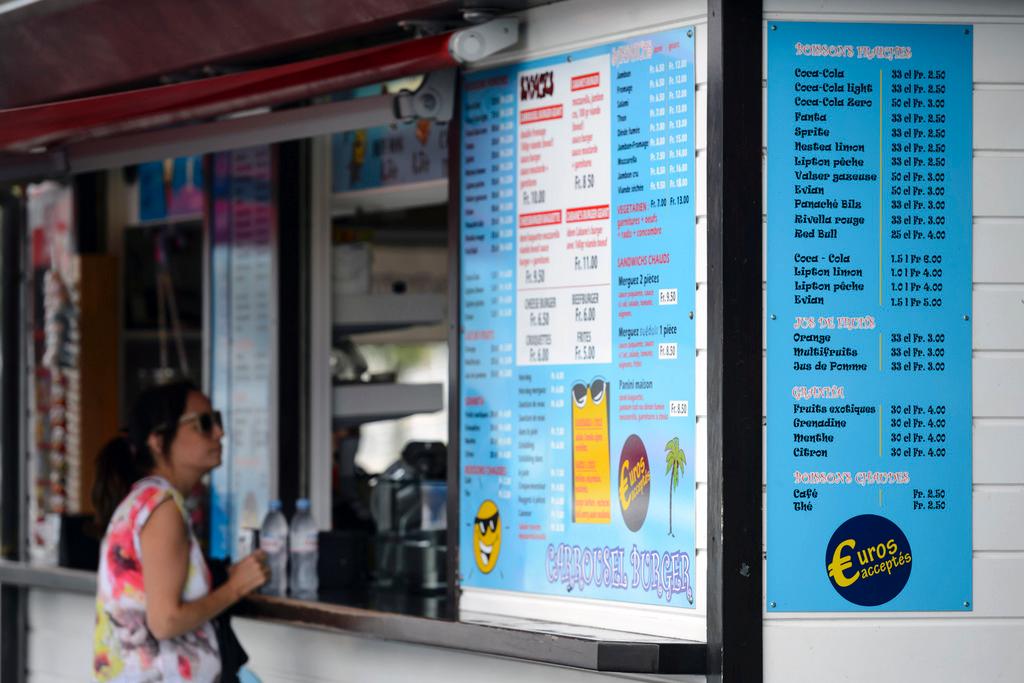
Single health insurance given short shrift

Voters have clearly rejected the introduction of a single health insurance company. It was the third unsuccessful attempt by the political left in ten years to reform the Swiss healthcare insurance scheme.
Official results show 61.8% of voters throwing out the initiative by centre-left political parties, patients and consumer groups.
They wanted to replace the more than 60 private company insurers with a single payer system offering mandatory basic health insurance coverage.
Four of the country’s 26 cantons – notably in western Switzerland – mustered a majority in favour of a single health insurer.
PLACEHOLDERJacqueline Fehr, a leading promoter of the initiative, said the result was disappointing but did not spell the end for the idea of the single payer principle.
Fehr, a parliamentarian for the centre-left Social Democrats, said the number of citizens dissatisfied with the current health insurance system has increased since previous votes on a public single health insurance company in 2004 and 2007.
The Green Party for its part said the result is a victory for the powerful insurance industry. The group announced it would push ahead with plans to allow regional single health insurance companies.
Vote of confidence
Santésuisse, the Association of Health Insurance Companies, said the outcome at the ballot box was a vote of confidence for the insurance system. But it stressed the importance of finding ways to contain the steady increase in health costs.
“It is crucial to allow only therapies which are efficient and reasonable,” Santésuisse director Verena Nold told the Swiss News Agency. She also called for better controls of practising doctors. However, she dismissed any attempt to limit health services.
Interior Minister Alain Berset said voters expressed their support for the government’s health policy. “The vote helped clarify the situation and paves the way for further reform of the Swiss healthcare system,” he told journalists.
Berset said parliament made a major step last week to increase transparency among health insurers and tighten controls. He added additional measures were necessary to improve the quality of the health system by boosting coordination among and reducing medical errors.
“This is not the end of the reform efforts, but the vote helped clarify the situation,” he said.

More
Restaurants lose bid for VAT parity with takeaways
Political scientist Claude Longchamp of the leading GfS Bern research and polling institute said Sunday’s result shows voters preference for the status quo. “The promoters of the single health insurance company failed to show the individual benefits of the proposed reform,” he told public radio.
Turnout was average, at 46.7%. Longchamp also noted a certain voter fatigue on Sunday, compared with previous ballots earlier this year.
Costs
The proponents of a single payer principle argued the current system is too costly and fails to provide for competition among insurers at the expense of consumers.
Critics also accused insurance companies of trying to attract young and healthy customers, undermining the principle of solidarity with the old and infirm.
Initiative promoters said up to CHF350 million ($372 million) could have been saved on administration, and total health expenditure could have been reduced by about 10% over the next few years.
However, most political parties, the government and the business community recommended rejection of the initiative. They say Switzerland has one of the most successful healthcare systems in the world.
Opponents warned of an inefficient bureaucratic organisation if citizens are no longer free to decide on the health insurer of their choice.
Mandatory
Basic health insurance coverage was made mandatory for Swiss residents in 1994.
Costs for individual health insurance premiums have been increasing steadily over the past decades. Total expenditure for healthcare reached a total of CHF68 billion, with just over a third going towards the basic insurance coverage.
The interior ministry last week announced an average increase of 4% for the insurance premiums next year.
So far Swiss voters have had the final say on 191 initiatives in total. But only 20 of them have won a majority at the ballot box since 1891.
Final results:
Single health insurance company: 38.2.% yes, 61.8% no
Unified VAT rate in catering industry: 28.5% yes, 71.5% no
Turnout: 46.7%
About 170,000 citizens, notably Swiss expats, were eligible to vote online. Nearly 26,000 of them – 15.2% – used the opportunity to take part in ongoing trials with e-voting, according to the Federal Chancellery.
Basel City and Basel Country won’t merge: The two Basel cantons won’t become one after a vote on September 28 where 68.3% of voters in Basel Country said no to the beginning of merger negotiations. Supporters of the merger had argued it would save both cantons money, politicians against the measure argued citizens of Basel Country should preserve their rural identity and not fuse themselves to a city.
Transparency in politics: The latest Swiss call for full transparency in politics was nipped in the bud as voters in canton Aargau rejected an initiative seeking to shed light on campaign financing and politicians’ financial entanglements. Voters rejected the proposal with 55.7% no votes.
Lake Geneva tunnel blocked: Voters in canton Geneva rejected plans to build a new 1.5-kilometre-long road tunnel under the lake. A total of 63% of voters turned down the initiative.
Electing foreigners: Canton Jura has voted 54% in favour of allowing foreigners to hold seats in government, while canton Schaffhausen 85% of voters said no to a proposal that would have allowed some non-Swiss to vote.

In compliance with the JTI standards
More: SWI swissinfo.ch certified by the Journalism Trust Initiative































You can find an overview of ongoing debates with our journalists here . Please join us!
If you want to start a conversation about a topic raised in this article or want to report factual errors, email us at english@swissinfo.ch.